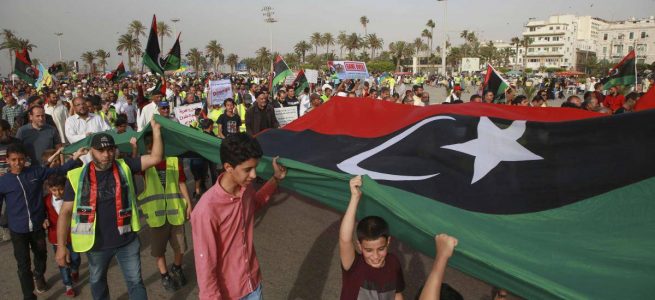
Turkey sends al-Qaeda and Islamic State-linked fighters to Libya
Turkey has sent Syrian fighters affiliated with extreme jihadists groups such as al Qaeda and Islamic State to Libya to fight on behalf of the U.N.-recognised Government of National Accord (GNA) in Tripoli, the Associated Press reported on Wednesday, citing two Libyan militia leaders and a group that monitors the Syrian war.
Turkey has brought more than 4,000 Syrian rebels into Tripoli, and dozens of them are linked to extremist groups, two Libyan militia leaders speaking on the condition of anonymity told the AP.
Turkey has not confirmed or denied reports that it has sent Syrian fighters to Libya to fend off an assault by General Khalifa Haftar’s Libyan National Army (LNA) which controls much of the east and south of the country, the AP said. The Turkish military also did not respond to requests for comment, it said.
Turkish President Recep Tayyip Erdoğan said in a television interview in January that Turkey would deploy a different kind of combat force in Libya, after parliament authorised him to send military forces to Tripoli in accordance with a military cooperation agreement signed with the GNA in late November.
“They are not among our soldiers. Those different teams will work with combat forces there. But our high-ranking soldiers will coordinate,” he said.
Since then, videos have circulated on social media appearing to show Syrian fighters in Tripoli. In one video, a man with a Syrian accent films the dormitories where he said he and other fighters were living. “Thank God, we arrived safely in Libya,” the man said, according to AP. Another clip shows a plane full of fighters, some wearing fatigues and speaking with Syrian accents, it said.
The New York Review of Books last week published an article that included interviews with Syrian rebels in Libya.
“Numbering roughly 500 on this section of the front, they told me they’d been in Libya several days and were part of a larger contingent of roughly 2,000 Syrian militiamen that started arriving a month ago, along with Turkish military personnel,” wrote reporter Frederic Wehrey.
Syrian fighters have fought alongside Turkish armed forces in the three Turkish military offensives in northern Syria since 2016. Turkey last year rebranded a number Syrian factions as the Syrian National Army (SNA). Critics say Turkey has incorporated extreme jihadist groups into the SNA.
The Syrian Observatory for Human Rights has identified at least 130 former Islamic State or al Qaeda fighters among the approximately 4,700 Turkey-backed Syrian mercenaries sent to fight for the Tripoli government, Rami Abdurrahman, the head of the Britain-based monitoring network, told the AP.
A Libyan official at the prime minister’s office told the news wire that Syrian fighters had been in Libya since early August. The Syrian fighters were at first facilitating the work of Turkish military experts, but after clashes in Tripoli accelerated in December, their numbers have increased and now they are being deployed to the front lines, the official said.
In Turkey, the main opposition Republican People’s Party (CHP) asked the government in a parliamentary inquiry submitted in early January whether the SADAT Defence Consultancy, a Turkish private contractor, would be among the civilian groups deployed in Libya.
SADAT, whose founder, former Brigadier General Adnan Tanrıverdi, was also Erdoğan’s adviser until early January, has taken part in training both Syrian rebels and some paramilitary groups in Turkey. The CHP asked whether SADAT coordinated the deployment in Libya of the different combat forces Erdoğan mentioned and whether those combat forces included Syrian rebels.
Representatives of the GNA, which is supported by Turkey and Qatar, and the LNA, which is backed by the United Arab Emirates, Egypt and to a certain extent by Russia, began meetings in Geneva on Tuesday to work toward a permanent ceasefire in Libya.
U.N. Secretary General Antonio Guterres on Tuesday called the situation in Libya a scandal and criticised countries, including Turkey, for not sticking to pledges they made last month in peace talks in Berlin.
“They committed not to interfere in the Libyan process and they committed not to send weapons or participate in any way in the fighting,” Reuters quoted Guterres as saying at the United Nations headquarters in New York.
Source: Ahval News





